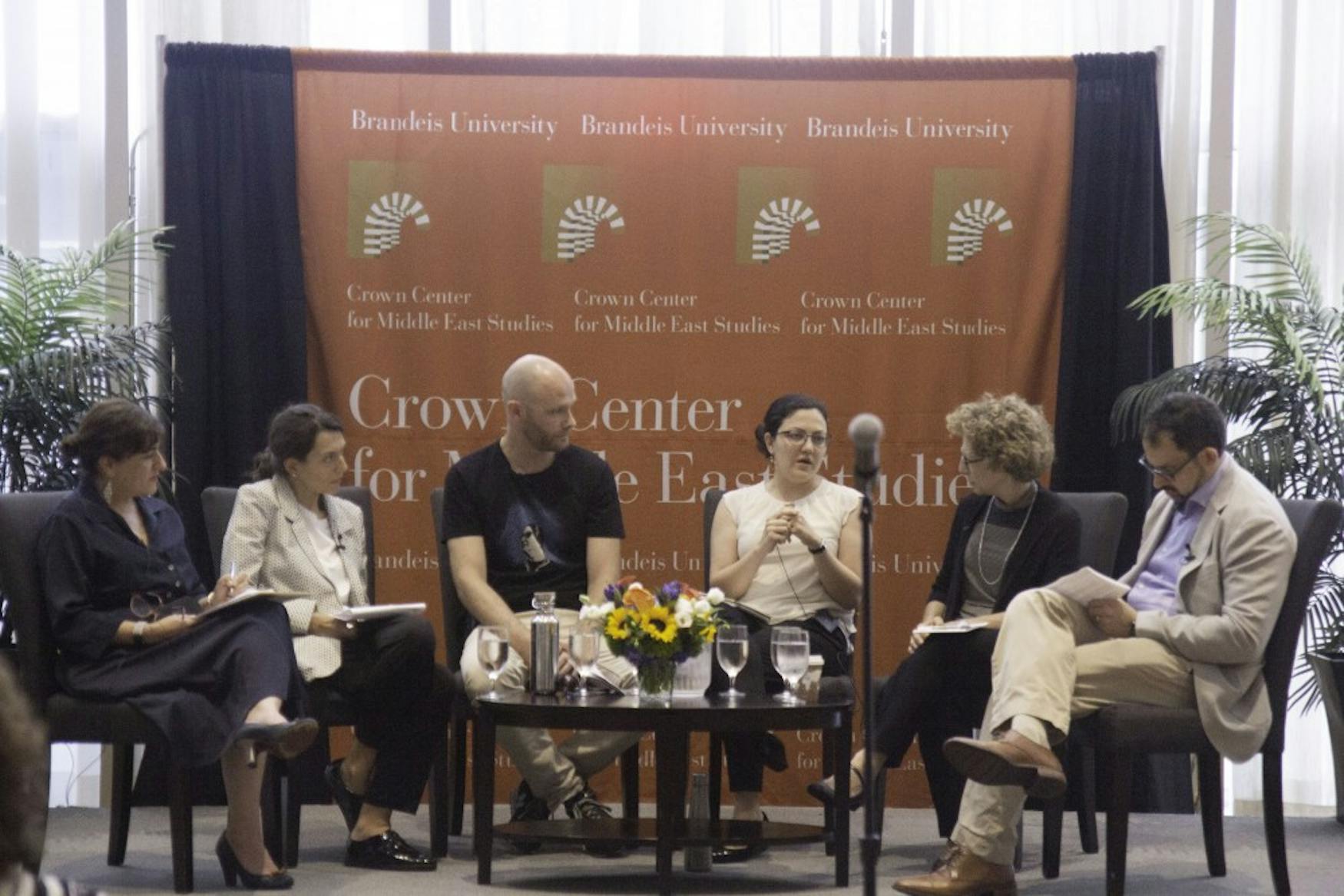Panelists discuss environmental and political issues in the Middle East
The panelists addressed undocumented immigration, renewable energy and more in the Middle East.
The Crown Center for Middle East Studies, an organization focused on bringing light to the Middle East through research, brought panelists to Brandeis to discuss current events in the Middle East for its annual kickoff event on Wednesday.
The discussion was moderated by the Director for Research at the Crown Center Naghmeh Sohrabi and the Associate Director for Research David Siddhartha Patel, and its opening remarks were made by the Crown Family Director and Professor of the Practice of Politics Gary Samore (POL). Samore prefaced the discussion by saying that since the Sept. 11 attacks, the Middle East has had “so much drama, mostly of the tragic kind, that we lose sight of positive developments.”
Gökçe Günel, an assistant professor of Anthropology at Rice University, discussed ecological city projects, which use green urban-planning techniques to mitigate the effects of climate change.
She shared an anecdote about her visit to Masdar City, the world’s first zero-carbon city and the basis of her latest book, “Spaceship in the Desert.” She emphasized the issues posed by sand-clogging of the solar panels the city used for power. When Günel asked a man showing her around the city how they had solved the problem, he said that an immigrant from South Asia had spent the day brushing the sand off all the solar panels.
Patel suggested that while “these projects look like they’re transformative,” they are actually “meant to preserve the status quo in many ways.” These projects don’t achieve their original goals because the projects often end up unfinished, he said.
Renée and Lester Crown Professor of Modern Middle East Studies Pascal Menoret (ANTH), spoke next, describing his research on pickup truck drivers in Saudi Arabia. He focused on those who parked outside of IKEA to pick up people’s purchases, drive them to their homes and assemble them there. When Menoret tried to take a picture of one of the men, the man got agitated and explained to Menoret that the police had come the week before, which made the man nervous, he said. The man was an undocumented migrant running an illegal business, and the situation escalated to the point that the man called the police on Menoret. Both Menoret and the man ended up in a jail cell, and Menoret questioned why someone “who was extremely vulnerable decided to call the police in that IKEA parking lot.”
Sohrabi asked Menoret his thoughts on why the man whose very existence was threatened by the authorities called the police, suggesting that patriotism allowed citizens to support the state. Sohrabi also brought up that patriotism and nationalism gave citizens a sense of belonging, but asked if this was a simplification of the situation. Günel added on to this notion of patriotism, suggesting that people will give up their freedom by choice if it seems that their decision will contribute to the greater good.
Menoret also explained a theory in political science that there is usually aggressive manipulation of grassroots groups by those in power. While members of royal families are seen being thrown in prison, she said, activists, though unseen, are also being put in prison. The people with power make this distinction to keep the country functioning. While this may protect the greater good, Singer said, this also keeps those in positions of power safe.
Prof. Amy Singer (HIST) explained the recent elections in both Turkey and Israel, highlighting the ways in which the two elections were similar and different. The elections were rescheduled in both Turkish and Israeli cities, and in the Turkish cities where the election was rescheduled, the people increased the margin by which their chosen official won significantly. In Israel, however, Singer said that she didn’t think there would be as great of a change in the way people voted.
Maryam Alemzadeh, a Harold Grinspoon Junior Research Fellow, spoke last and discussed an interview she conducted with an Iranian man about the travel ban that barred nationals from seven Muslim-majority countries from entering the United States. She said that the man was joyful about the travel ban as he saw it as a “triumph for [the] more radical part of Iran” and that this turn of events justified their anti-Western beliefs.




Please note All comments are eligible for publication in The Justice.